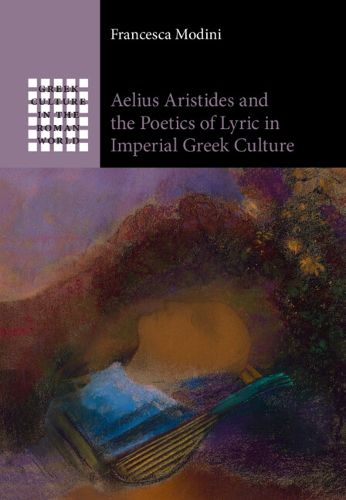Readings Newsletter
Become a Readings Member to make your shopping experience even easier.
Sign in or sign up for free!
You’re not far away from qualifying for FREE standard shipping within Australia
You’ve qualified for FREE standard shipping within Australia
The cart is loading…






This book is the first study of the persistence and significance of ancient lyric in imperial Greek culture. Redefining lyric reception as a phenomenon ranging from textual engagement with ancient poems to the appropriation of song traditions, Francesca Modini reconsiders the view of imperial culture (paideia) as dominated by Homer and fifth-century Attic literature. She argues that textual knowledge of lyric allowed imperial writers to show a more sophisticated level of paideia, and her analysis further reveals how lyric traditions mobilised distinctive discourses of self-fashioning, local identity, community-making and power crucial for Greeks under Rome. This is most evident in the works of Aelius Aristides, who reconfigured ancient lyric to shape his rhetorical persona and enhance his speeches to imperial communities. Exploring Aristides' lyric poetics also changes how we interpret his reconstruction of the classical tradition and his involvement in the complex politics of the Empire.
$9.00 standard shipping within Australia
FREE standard shipping within Australia for orders over $100.00
Express & International shipping calculated at checkout
This book is the first study of the persistence and significance of ancient lyric in imperial Greek culture. Redefining lyric reception as a phenomenon ranging from textual engagement with ancient poems to the appropriation of song traditions, Francesca Modini reconsiders the view of imperial culture (paideia) as dominated by Homer and fifth-century Attic literature. She argues that textual knowledge of lyric allowed imperial writers to show a more sophisticated level of paideia, and her analysis further reveals how lyric traditions mobilised distinctive discourses of self-fashioning, local identity, community-making and power crucial for Greeks under Rome. This is most evident in the works of Aelius Aristides, who reconfigured ancient lyric to shape his rhetorical persona and enhance his speeches to imperial communities. Exploring Aristides' lyric poetics also changes how we interpret his reconstruction of the classical tradition and his involvement in the complex politics of the Empire.